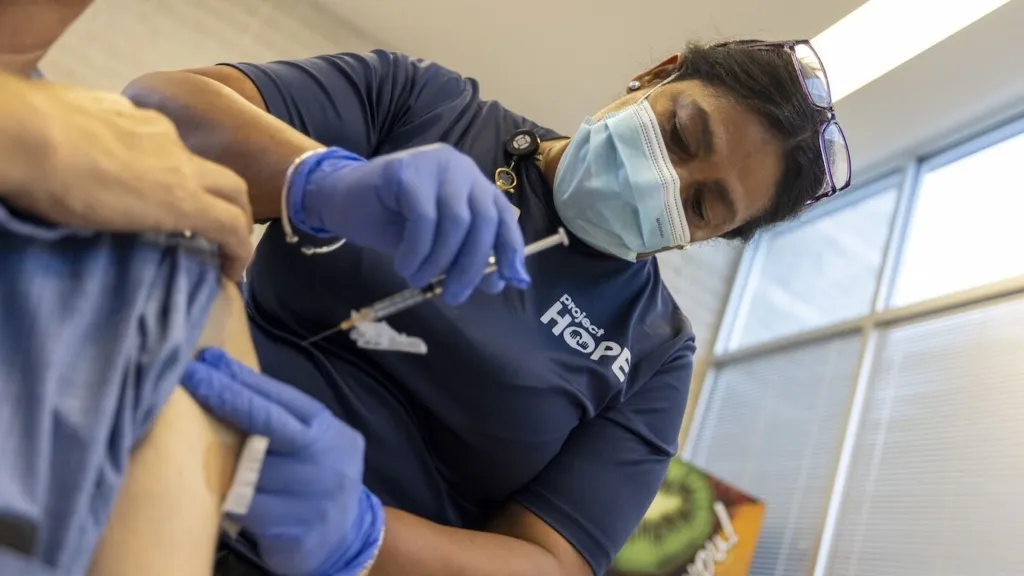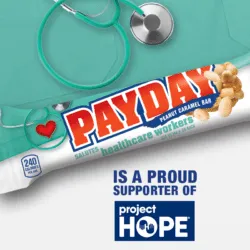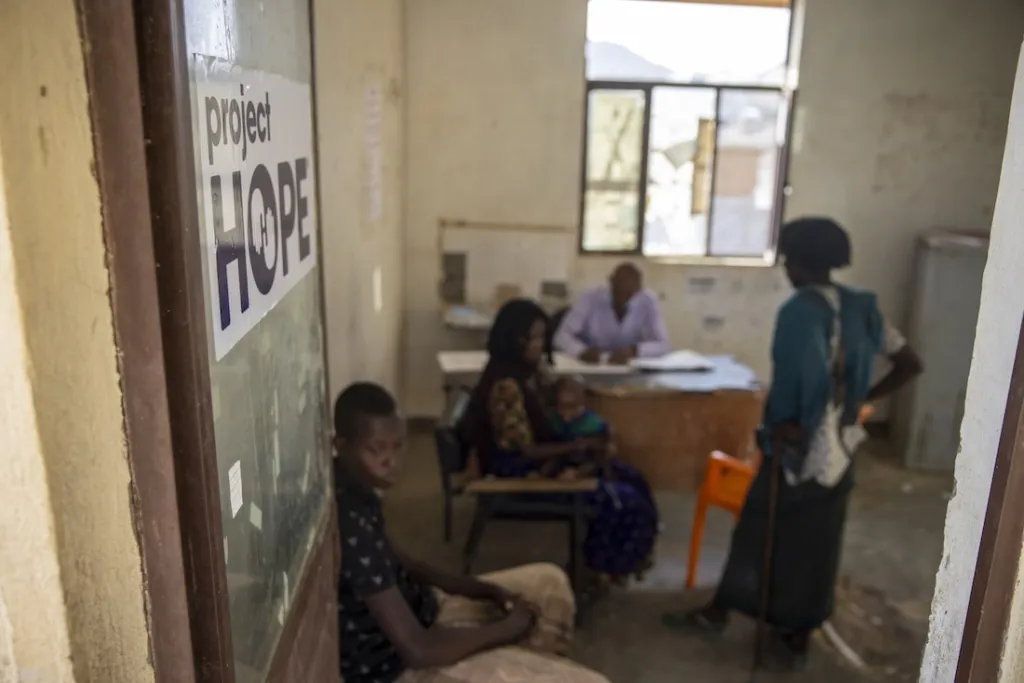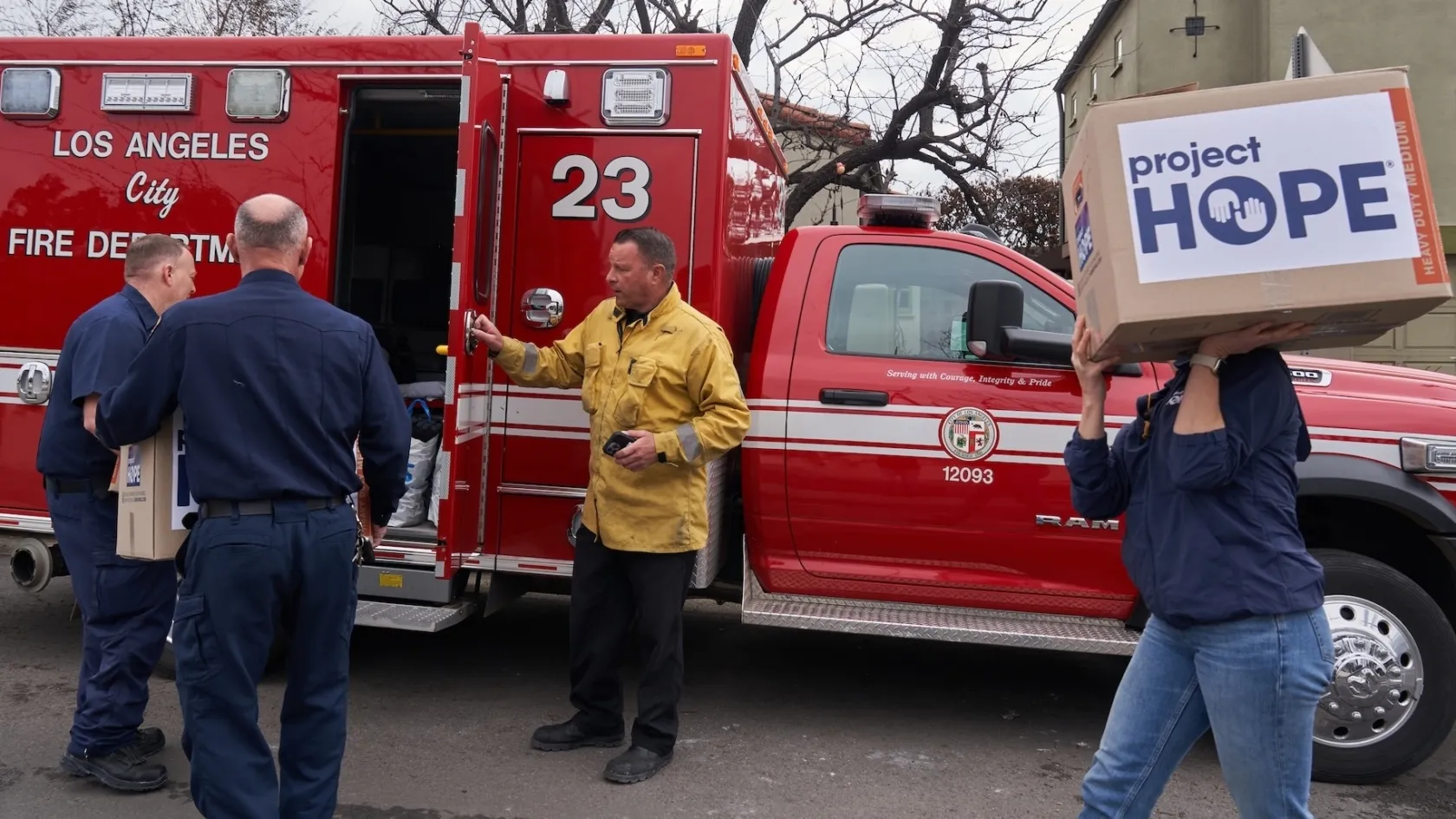5 Things to Know About Health Worker Burnout
Around the world, high rates of burnout are driving health workers away from their work. Learn more about the burden health workers carry, why many keep silent, and the implications for patient care.

With the world already suffering a significant health worker shortage, the worsening trends could be detrimental to global health.
More and more health workers are leaving their jobs to protect their mental health.
Here are five things to know about health worker burnout and the impact it has on patient care.
1. Health workers are experiencing delayed burnout from COVID-19.
As staffing shortages persist and intensify, work has become increasingly taxing for the health workers remaining in their field.
Health workers are burned out. A new survey found over half of U.S. health workers stressed, overworked, and ready to leave their jobs. Nurses reported the highest levels of burnout, and levels of burnout among health workers across the board have continued to rise even though the public health emergency has ended.
2. Nearly one-third of clinicians are considering leaving their job in the next few years.
In a global survey of clinicians, 31% reported they were planning to leave their current role in the next two to three years, including 42% of clinicians in the Middle East and Africa.
Over half of surveyed clinicians said they would stay in the health care sector but pursue jobs in different settings. According to the World Health Organization, more and more often, health workers are leaving lower-income countries for better opportunities abroad — a trend that has continued to accelerate over the course of the pandemic, exacerbating staff shortages in countries where resources are more limited and health challenges are most dire.

In 2023, Project HOPE partnered with PAYDAY to honor health care workers through the PAYDAY Salutes campaign, which recognizes the service and sacrifice of everyday heroes. In addition to recognizing health care workers on limited edition PAYDAY wrappers, PAYDAY is making a donation to Project HOPE and giving everyone the chance to celebrate their health care heroes through the hashtag #PaydaySalutes.
“We wanted to celebrate the hard work of our everyday heroes who don’t always get the recognition they deserve,” said Alex Neufeld, Senior Associate Brand Manager at The Hershey Company. “This program shines a spotlight on these unsung heroes and the organizations that support their invaluable work. It was important for us to partner with organizations such as Project HOPE, who continues to enable these heroes day in and day out. Health care workers embody the ‘Get To It’ attitude that PAYDAY stands for, and we are honored to recognize their tireless efforts.”
Learn more about PAYDAY Salutes here.
3. In the U.S., 1 in 5 health workers have quit their jobs since 2020, and up to 47% of health workers could leave their positions by 2025.
Burnout and mental health challenges affect health workers in countries around the world, including the U.S.
Since the start of the COVID-19 pandemic, 1 in 5 U.S. health workers have left their jobs, and the hospital workforce is down 1.8%. About 4 in 5 health workers left behind say they’ve been affected by staffing shortages, working longer hours and with higher patient loads to compensate for fewer teammates.
The trend isn’t slowing down. One survey suggests nearly half of U.S. health workers are thinking about leaving their current positions, with some considering temporary assignments in order to avoid burnout. Staffing agencies are reporting more interest in short-term travel assignments, which typically offer better pay and greater flexibility.
4. Health workers experiencing mental health challenges are likely to stay silent.
When health workers face mental health challenges, they often struggle to seek out treatment and support. Lack of mental health resources is a barrier, but social stigma and fear of professional reprisal are often the greatest impediments to care.
At the end of 2020, less than 15% of U.S. health workers had sought treatment for pandemic-related mental health concerns. And while 87% of emergency physicians reported struggling with increased stress and 72% reported more burnout, nearly half of them were uncomfortable and unwilling to seek mental health care.
In a 2022 survey of U.S. physicians, 80% acknowledged a stigma around doctors seeking mental health care and 40% reported that either they or a colleague had been afraid of seeking treatment because of confidentiality issues and concern that it would negatively impact their career.
To help reduce stigma and normalize mental health support in and among health care professionals, Project HOPE is leading mental health and resiliency trainings for front line health workers under increased stress, including those in Colombia, Ethiopia, Syria, and Yemen. These trainings bring health workers together to talk openly about topics like burnout, exhaustion, and compassion fatigue and to work through ways to combat mental health stigma in the workplace.

5. Burnout jeopardizes patient safety and care.
When health workers feel overwhelmed and experience burnout, it’s likely to compromise their ability to provide quality patient care. Studies link burnout to “suboptimal” practices and predict it to double the risk of medical error.
Burnout has become one of the leading causes of the global exodus from the health workforce, underscoring the urgent need to prioritize and expand support, including mental health, for health workers. Around the world, we’re ensuring health workers have the support they need to protect their own health and well-being so they can sustain their livelihoods providing care for others. Our trainings, which are based on HERO-NY, a program developed by New York City Health + Hospitals in partnership with the U.S. Department of Defense, are active on five continents. These efforts apply to the spectrum of health workers, from the community level to trauma physicians, including nurses and lab technicians. These trainings have been underway for three years and will soon surpass 50,000 people worldwide.



